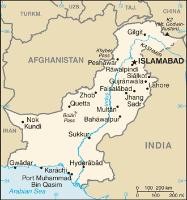With Pakistan's much-anticipated Feb. 18 elections fast approaching against the backdrop of mounting jihadist activity in the country's Federally Administered Tribal Areas (FATA), questions about the stability of the region and the strategic implications of the activity there for U.S. interests seem to be growing more urgent by the day. While Pakistan has been considered a "key ally" in the war on terror for many years now, receiving at least $10 billion since 9/11 for its support in hunting down top al-Qaida operatives, this partnership has become dramatically more complex of late, and American decision makers are now facing difficult dilemmas in the region. To date, U.S. military support to the Pakistani army in combating the jihadist presence has remained largely indirect. But as militant activity has stepped up its intensity in recent months with a string of deadly suicide attacks, most markedly with the assassination of former Prime Minister Benazir Bhutto on Dec. 27, U.S. officials are becoming increasingly concerned about President Pervez Musharraf's capacity and will to confront the groups operating in these lawless regions. After years of training for a conventional conflict with India, it seems clear that the Pakistani military is ill-prepared for the complex counterinsurgency it now faces in the FATA. Perhaps more troubling though are the signs that Musharraf is not wholly committed to the fight. Talk in Washington indicates a growing concern with the situation in Pakistan and suggests that the time may soon come when the U.S. military assumes a more direct role in the counterterrorism campaign there. U.S. Defense Secretary Gates has foreshadowed the potential for such a policy shift frequently over recent months, and he has become increasingly adamant in his public statements about the presence of high level al-Qaida and Taliban leaders having found sanctuary in the region -- all of which Pakistan denies. Michael Vickers, assistant defense secretary for special operations and low-intensity conflict, indicated recently that U.S. involvement in Pakistan may expand, saying that "training assistance is very important, but could extend to some other areas as well."
Pakistan’s Theater of Jihad and the Growing Complexity of the Terror War

